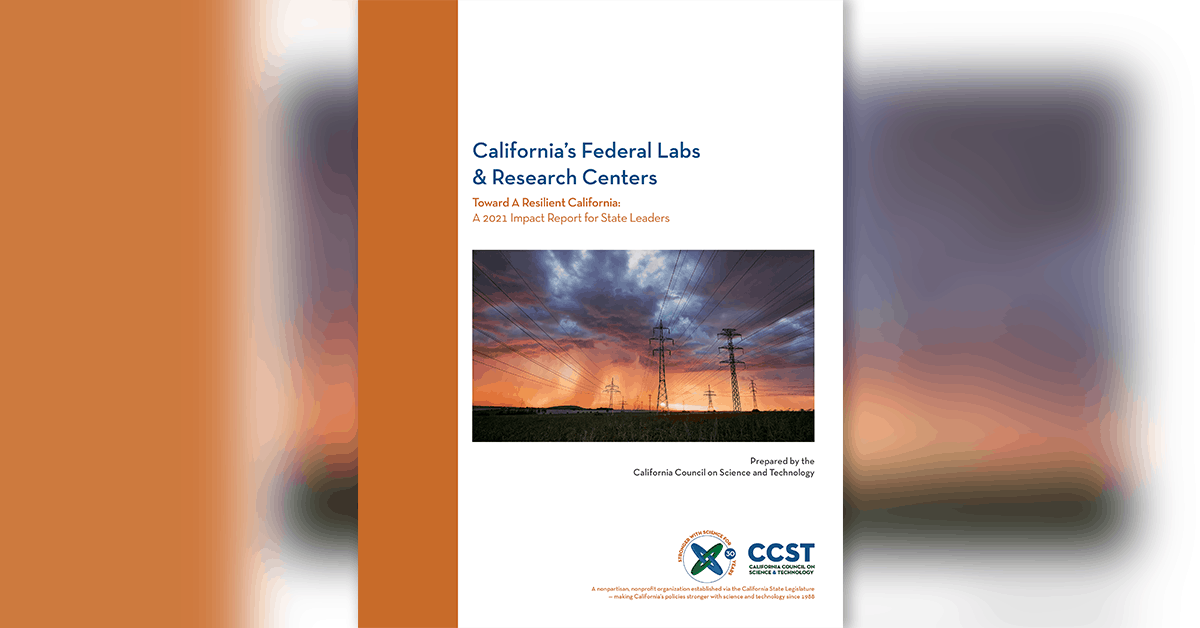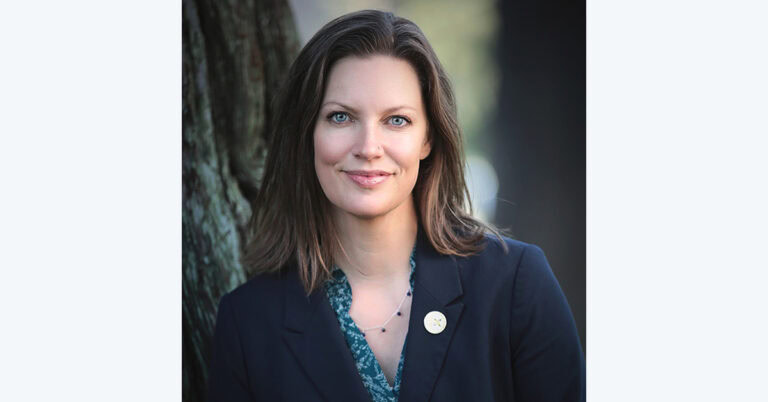Deputy Director
Report: California’s NASA and DOE Labs Provide Cutting-Edge Solutions Toward Climate, Disaster Resilience
April 28, 2021 | CCST Newsroom, Federal Research in California, Press Releases | Contact: John Thompson
FOR IMMEDIATE RELEASE
Media Contact: [email protected]
SACRAMENTO, Calif.—A new impact report released by the California Council on Science and Technology (CCST) showcases how NASA field centers and Department of Energy national laboratories in California are leveraging their world class technology and expertise to address climate change, sea level rise, wildfire, COVID-19, drought, and other major threats—toward a resilient California.
The report, “California’s Federal Labs & Research Centers. Toward a Resilient California: A 2021 Impact Report for State Leaders” can be read and downloaded on CCST’s website:
“California’s and the United States’ global leadership on science and technology is perfectly illustrated by the NASA field centers and federal laboratories in California,” said CCST Executive Director Amber Mace. “The same institutions that are landing rovers on Mars are using their technology to measure sea level rise at home. The NASA field centers and federal laboratories are using cutting-edge technology on a major scale to predict the effects of climate change and to model future disasters. Their work is essential to our long-term disaster resilience efforts in California and beyond.”
A global leader in science and technology research and innovation, California is home to a diverse range of federal labs, science centers, and field stations, across several U.S. agencies, departments, and bureaus. Six of these entities are CCST Partner Institutions, highlighted in the report:
National Aeronautics and Space Administration (NASA) Field Centers
- Ames Research Center (NASA Ames)
- Jet Propulsion Laboratory (NASA JPL)
U.S. Department of Energy (DOE) National Laboratories
- Lawrence Berkeley National Laboratory (Berkeley Lab)
- Lawrence Livermore National Laboratory (LLNL)
- Sandia National Laboratories/California (Sandia/California)
- SLAC National Accelerator Laboratory (SLAC)
The report profiles each institution—together representing billions of dollars of Federal investment and tens of thousands of jobs—providing specific examples of their work on issues of state, federal, and global importance. The report highlights examples relating to real-time disaster monitoring and communication, greenhouse gas emissions, carbon neutrality, sea level rise, COVID-19 infection screening, earthquake recovery, electric grid resilience, microgrids, building for extreme heat, water quality and drought, and much more.
Some examples include:
- Development of a mobile biorefinery for wildfire fuel reduction by Berkeley Lab and CAL FIRE
- Innovative portable charging solutions by LLNL using novel 3D-printed aerogel electrodes
- Big data climate change projections using supercomputers at NASA Ames
- Use of high resolution radar data at NASA JPL to better prepare for landslides
- Preventing dangerous corrosion of oil refinery equipment using X-rays at SLAC
- Simulating ice flow at Sandia to predict behavior of Greenland and Antarctic ice sheets
###
About the California Council on Science and Technology
The California Council on Science and Technology is a nonpartisan, nonprofit organization established via the California State Legislature — making California’s policies stronger with science and technology since 1988. We engage leading experts in science and technology to advise State policymakers — ensuring that California policy is strengthened and informed by scientific knowledge, research, and innovation.





